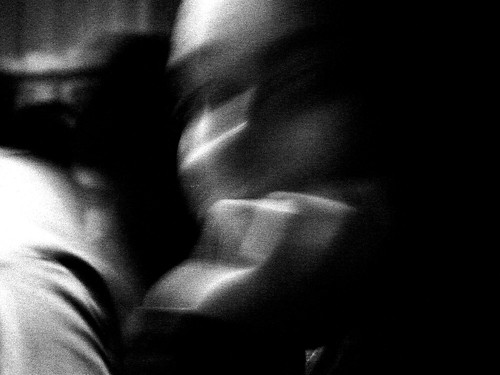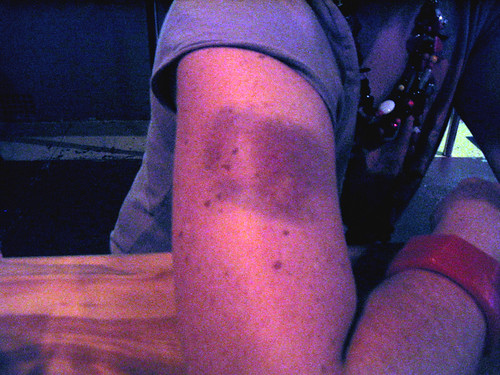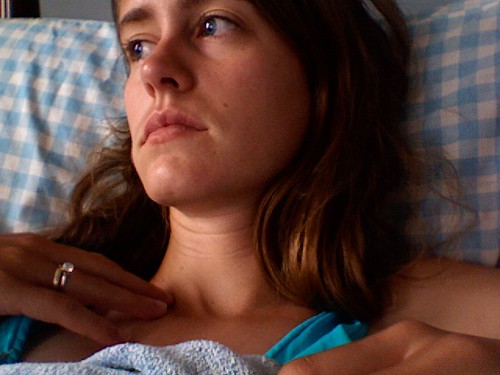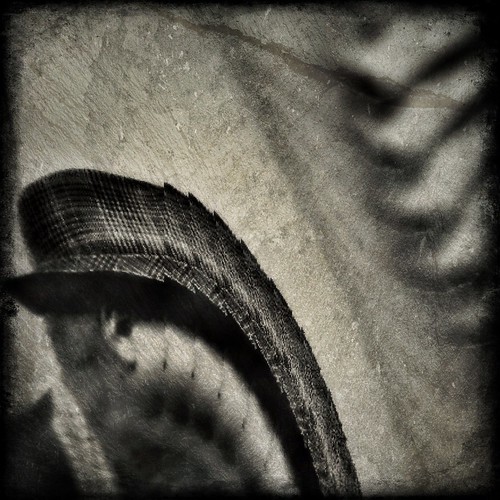by Anne Elizabeth Weisgerber

When I saw you I saw you with laser-beam sight as I left Empenadas by Stella still singing; I sang my girl’s name and I knew all my light was projected in open-faced stance; as one sinning, her car coat swung in; I pushed open her door; my right hand slipped smoothly along her warm waist, unspooling her laughter, my hand finding more, I could sense my wife passing, my tongue knew her taste and I thought about standing and stammering saying but she is so warm and so firm and so willing – a true son of Belleville, a Belleville worth slaying, whose gold in the palm runs unmelted and chilling – a moment a minute I feign an excuse, my tongue all a-tumble, unthreaded as Theseus now tired of treading a labyrinth life that reduced me to eyes seeing only the clew… in New York in your bed over more royal tread do I hear the train hear the train hear the train take you but trailing behind were those shining steel threads that were caught in the caught in the stairs’ endless climb; I will pin down your pines, then, Oh Minna: I’ll break you.
Anne Elizabeth Weisgerber has fiction in SmokeLong Quarterly, New South, The Journal of Compressed Creative Arts, Shotgun Honey, and she is a Best Small Fictions 2016 Finalist. She reads for Pithead Chapel, reviews for Change Seven Magazine, and is writing her first novel. Follow her @AEWeisgerber, or visit anneweisgerber.com


 m.nicole.r.wildhood is a Colorado native who has been living in Seattle—and missing the sun—since 2006. She has been a saxophone player and registered scuba diver for over half her life. In addition to blogging at
m.nicole.r.wildhood is a Colorado native who has been living in Seattle—and missing the sun—since 2006. She has been a saxophone player and registered scuba diver for over half her life. In addition to blogging at 


 Ruchira Mandal has a day-job as an Assistant Professor of English Literature and tries to write in between checking millions of answer scripts. She has sporadically published travelogues in newspapers, fiction and poetry in a variety of medium and has also been part of a few indie anthologies. You can follow her
Ruchira Mandal has a day-job as an Assistant Professor of English Literature and tries to write in between checking millions of answer scripts. She has sporadically published travelogues in newspapers, fiction and poetry in a variety of medium and has also been part of a few indie anthologies. You can follow her 

 E.N. Loizis is a Greek writer trapped inside the body of a technical translator who lives in Germany with her husband und baby daughter. Her stories have appeared in Maudlin House, Apocrypha & Abstractions and Pidgeonholes. You can find her at
E.N. Loizis is a Greek writer trapped inside the body of a technical translator who lives in Germany with her husband und baby daughter. Her stories have appeared in Maudlin House, Apocrypha & Abstractions and Pidgeonholes. You can find her at 

 Katta Hules is an artist and a writer currently based in California. She is an Editor at
Katta Hules is an artist and a writer currently based in California. She is an Editor at 

 Monika McGreal Viola’s work has appeared in Hermeneutic Chaos, AZURE, Icarus, Thirteen Ways Magazine, PennUnion, and Common Ties. Her poetry also has been twice shortlisted for the Fish Anthology Poetry Prize. Find her at
Monika McGreal Viola’s work has appeared in Hermeneutic Chaos, AZURE, Icarus, Thirteen Ways Magazine, PennUnion, and Common Ties. Her poetry also has been twice shortlisted for the Fish Anthology Poetry Prize. Find her at